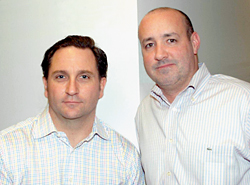Communication between trader and portfolio manager is key to maximizing alpha for small caps. That’s why at ING Investment Management the firm’s entire small-cap team works to be on the same page and not miss opportunities.

"There’s a close relationship with the portfolio managers who are deciding which names they like fundamentally," said Enrico Cacciatore, a senior trader at ING. "They let us know what names they’re interested in, buys and sells, and we’ll indicate to them event-driven news, price points where we see short- to mid-term support and resistance and how much they can buy or sell based on liquidity, volatility, market impact and potential natural blocks."
A disciplined approach from stock selection all the way through execution is a primary factor for success, he added. At ING, the PMs embrace the insights of traders and have made them a part of the portfolio process, Cacciatore said. Traders might sit on a small-cap block for days before acting, patiently waiting for the right opportunity.
Instant messaging is the means of communication about 75 percent of the time, with the balance being done on the phone or face-to-face, Cacciatore said.
Brian Murray, a senior equity trader at ING, said good communication between traders and portfolio managers leverages the skills of each and adds alpha. A large-cap manager might simply send an order down to get it done, but a small-cap order requires more finesse.
"There’s certainly more interaction with the small-cap managers," Murray said. "You may have orders on your blotter for an extended period of time and it is important to pick your spots and stick to your levels. If there is anything going on in their names, we always alert them and they are very receptive to any commentary and feedback."
Many algos still aren’t suited for small-cap stocks, so the key is finding the ones that are. ING also has proprietary execution methods for sourcing stock, so it can access dark liquidity directly without using broker algos, according to Cacciatore.

Simply letting a broker’s algo go on autopilot and trusting that everything will turn out alright in the end is no longer an option, Cacciatore said.
Murray agrees. He said that price can sometimes move away from you in small caps. But if traders are patient, prices do tend to come back, giving another chance to execute at a better price.
"The volatility definitely presents some opportunity," Murray said. "It’s just a matter of being patient, sticking to your levels and knowing when to execute."
Recently, the bulge bracket has become more involved in small caps, according to Murray. Just five or six years ago, it was mainly sellside boutiques that focused on small caps, but bulge firms have now pushed into the space and ramped up their small-cap desks, he said.




